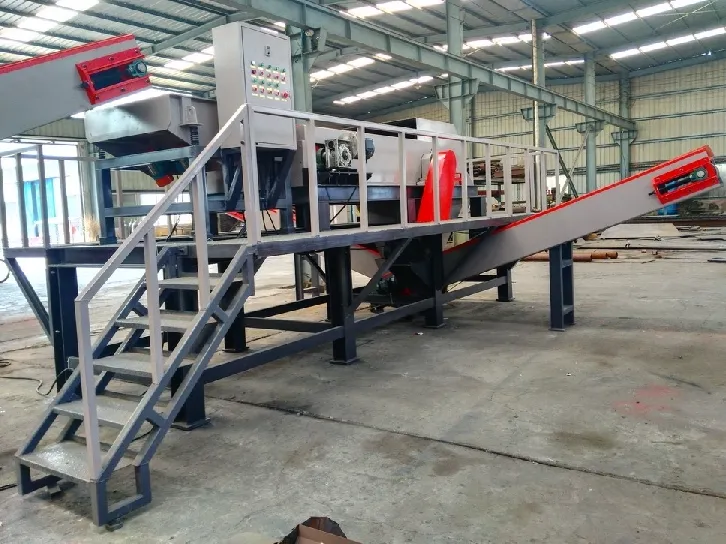

Nov . 13, 2024 01:38 Back to list
The Role of Hammer Crushers in Cement Plants
In the modern cement manufacturing process, efficiency and precision are paramount. One of the crucial pieces of equipment that contribute to this efficiency is the hammer crusher. This machine plays an integral role in the initial stages of the cement production line, ensuring that raw materials are adequately prepared for further processing.
What is a Hammer Crusher?
A hammer crusher, also known as a hammer mill, is a type of crushing machine that uses rotating hammers to crush materials. It is primarily used to crush materials such as limestone, coal, gypsum, and clay, which are essential components in cement production. The design of the hammer crusher allows it to efficiently break down large chunks of material into smaller, more manageable sizes.
Operating Principle
The hammer crusher works on the principle of impact. When raw materials enter the machine, they are subjected to high-speed rotation of the hammer, which strikes the material, shattering it into smaller particles. The crushed material then passes through a sieve, ensuring that only particles of a specified size continue to the next stage of production. This process not only helps in reducing the size of the materials but also enhances their surface area, facilitating better chemical reactions during subsequent processes.
Importance in Cement Production
1. Size Reduction The primary function of a hammer crusher in a cement plant is to reduce the size of raw materials. The incoming feed material, often large rocks of limestone and other minerals, must be crushed to a powdery consistency before it can be mixed with other elements for cement production.
2. Consistency Achieving a uniform particle size is critical in the cement manufacturing process. Inconsistent sizes can lead to uneven burning in the kiln, affecting the quality of the final product. Hammer crushers provide uniformity by producing a consistent particle size distribution.

3. Energy Efficiency Modern hammer crushers are designed to minimize energy consumption. By efficiently crushing materials in fewer stages, they reduce the energy required for subsequent grinding processes. This energy efficiency is essential in reducing overall production costs and minimizing the plant's environmental impact.
4. Versatility Hammer crushers are versatile machines capable of handling a variety of raw materials. They can crush not only limestone but also other materials such as clay and gypsum, making them an essential tool in a cement plant's operations.
5. Ease of Maintenance Hammer crushers are designed for easy maintenance, a critical factor in ensuring smooth operations in a cement plant. Regular maintenance and easy replacement of wear parts ensure that the machine remains operational, reducing downtimes and boosting productivity.
Challenges and Solutions
While hammer crushers offer numerous benefits, they also face some challenges. Material build-up and wear of the hammers can lead to reduced efficiency over time. To combat this, regular maintenance schedules should be established. Additionally, operators must ensure that the crushers are not overloaded, as this can lead to increased wear and tear.
To address these challenges, technology has evolved, with manufacturers offering advanced designs that improve the durability and performance of hammer crushers. Innovations such as high-strength hammers and improved discharge systems help reduce wear and increase the lifespan of the equipment.
Conclusion
In conclusion, hammer crushers are essential components in cement plants, contributing significantly to the efficiency and effectiveness of the production process. By providing size reduction, consistency, and energy efficiency, they help ensure that high-quality cement is produced in a cost-effective manner. As technology continues to advance, the role of hammer crushers will remain pivotal in the quest to optimize processes and enhance sustainability in cement production. The continual evolution of this machinery will undoubtedly support the cement industry in meeting the growing global demand for sustainable building materials.
Latest news
Troubleshooting Common Eddy Separator Problems
NewsJul.04,2025
The Role of Metal Recycling Plants in Circular Economy
NewsJul.04,2025
The Impact of Recycling Line Pickers on Waste Management Costs
NewsJul.04,2025
Safety Features Every Metal Shredder Should Have
NewsJul.04,2025
How Industrial Shredders Improve Waste Management Systems
NewsJul.04,2025
How Cable Granulators Contribute to Sustainable Recycling
NewsJul.04,2025